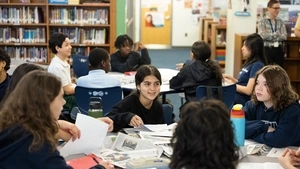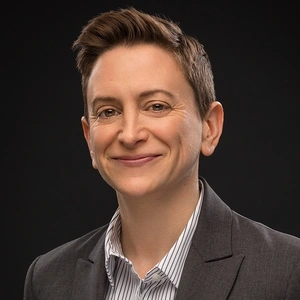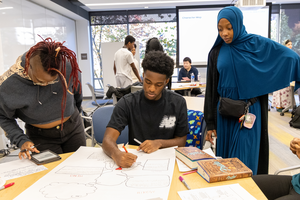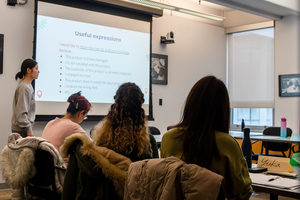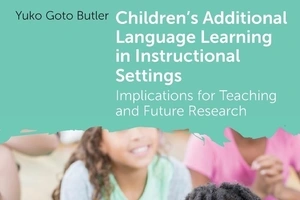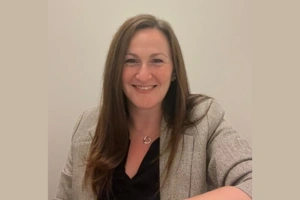Faculty Expert
Penn GSE Associate Professor Abby Reisman says educators face mounting challenges navigating political and social discourse, and this fall will test them. She recommends empathetic classroom management, guided activities, and fostering personal connections to ease tensions and open dialogue.
Reisman, an expert in social studies teaching and teacher education, points to divisive issues like race relations, the presidential election, and conflict in the Middle East as potential challenges to open classroom conversations that may create stress for students and teachers. She recommends that social studies and other subject area teachers anticipate and prepare to facilitate discussions through these tensions.
Reisman advises educators in Penn GSE’s Dialogue Across Difference certificate program, which helps K–12 and higher ed educators and leaders to deepen their understanding of civic discourse in educational settings. She offers the following tips for all teachers and administrators:
1) Get to know your students
When teachers establish personal relationships with students, Reisman says they’re more likely to share opinions and participate comfortably. For example, one relationship-building activity is the Digital Inquiry Group’s Snapshot Autobiography lesson in which students share key moments in their lives. This activity provides a valuable window into students’ perceptions and narratives and reveals that the stories and histories students tell are very much shaped by their perspective on events.
2) Stop for stress
Social studies and history can veer into complex territory. When a classroom discussion gets heated or emotional, Reisman encourages teachers to hit “pause,” ask students to breathe deeply, and perhaps take a moment to journal about their feelings. What was said, and how did it land? Why do students think the moment became stressful?
“Acknowledging that it is a stressful moment and that there is tension in the room, rather than just pivoting, encourages active listening,” she explains.
Embracing discomfort rather than shutting down discussion and redirecting students communicates honesty and respect.
3) Prepare and revisit
Most teachers know even the most well-planned lessons can be interrupted, but political and historical disagreements raise the stakes. Disagreement can hit any classroom, from social studies to biology or even calculus.
When educators are caught off guard, they can calm students by promising to revisit issues with intention and perspective.
That means homework for teachers. After a contentious conversation, dig into your materials and curriculum resources. Look for multiple viewpoints on an event or topic and pull from unexpected sources, such as poems written from the era or impacted individuals.
4) Get creative with training
While some subject areas, such as math or reading, have well-developed teacher training and curricular support, Reisman says many social studies teachers are on their own. Most districts don’t offer subject-specific professional development in social studies. At the same time, Reisman says social studies, civics, and history teachers are subject to intense scrutiny from parents, administrators, and communities.
“Social studies teachers don’t receive sufficient guidance or support on what to teach, how to teach, and how to have conversations,” she elaborates.
Reisman advises social studies teachers to create ad hoc networks of educators working on similar topics. She regularly meets with a group of social studies educators to discuss problems of practice and share experiences. These peer networks can address challenges, share lessons, and provide feedback.
Reisman also recommends educators regularly film their lessons and workshop them with subject matter peers and a mentor or teacher coach.

Dr. Abby Reisman is an associate professor of Teacher Education in the Learning, Teaching, and Literacies division at Penn GSE. Her work has appeared in Cognition and Instruction, Journal of Curriculum Studies, Teachers College Record, Journal of Teacher Education, and Teaching and Teacher Education.
Subscribe to the Educator's Playbook
Get the latest release of the Educator's Playbook delivered straight to your inbox.
Media Inquiries
Penn GSE Communications is here to help reporters connect with the education experts they need.
